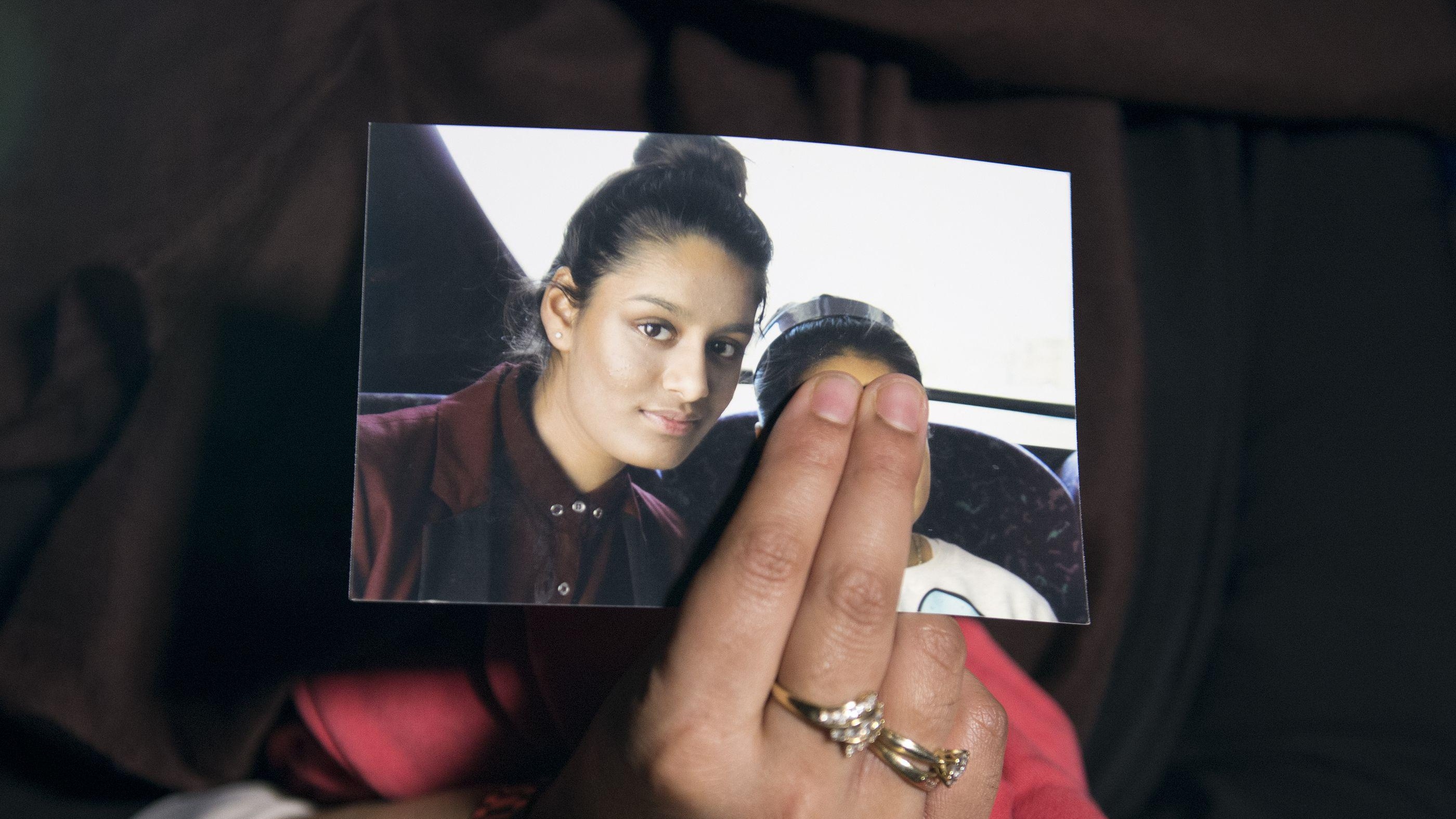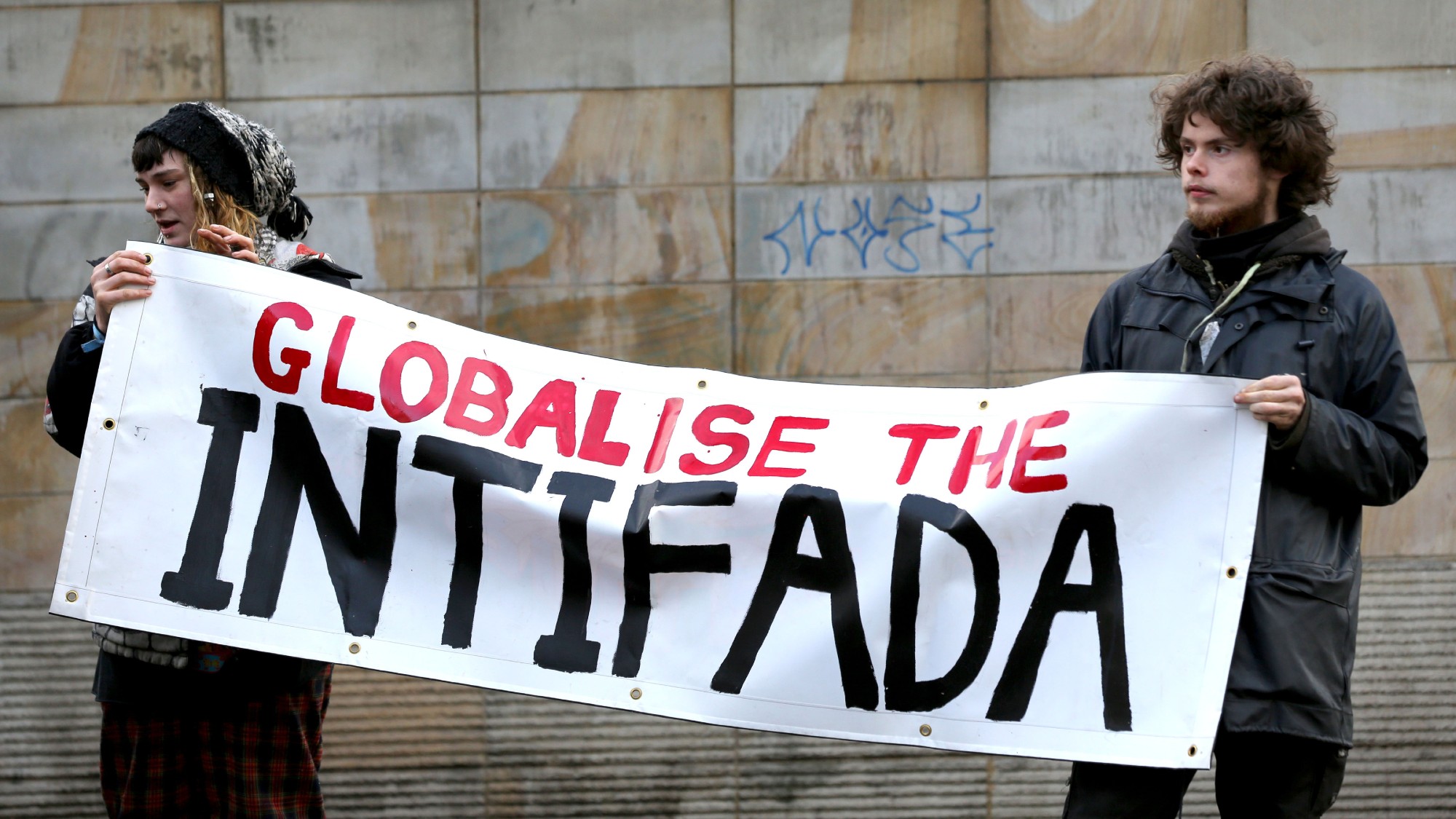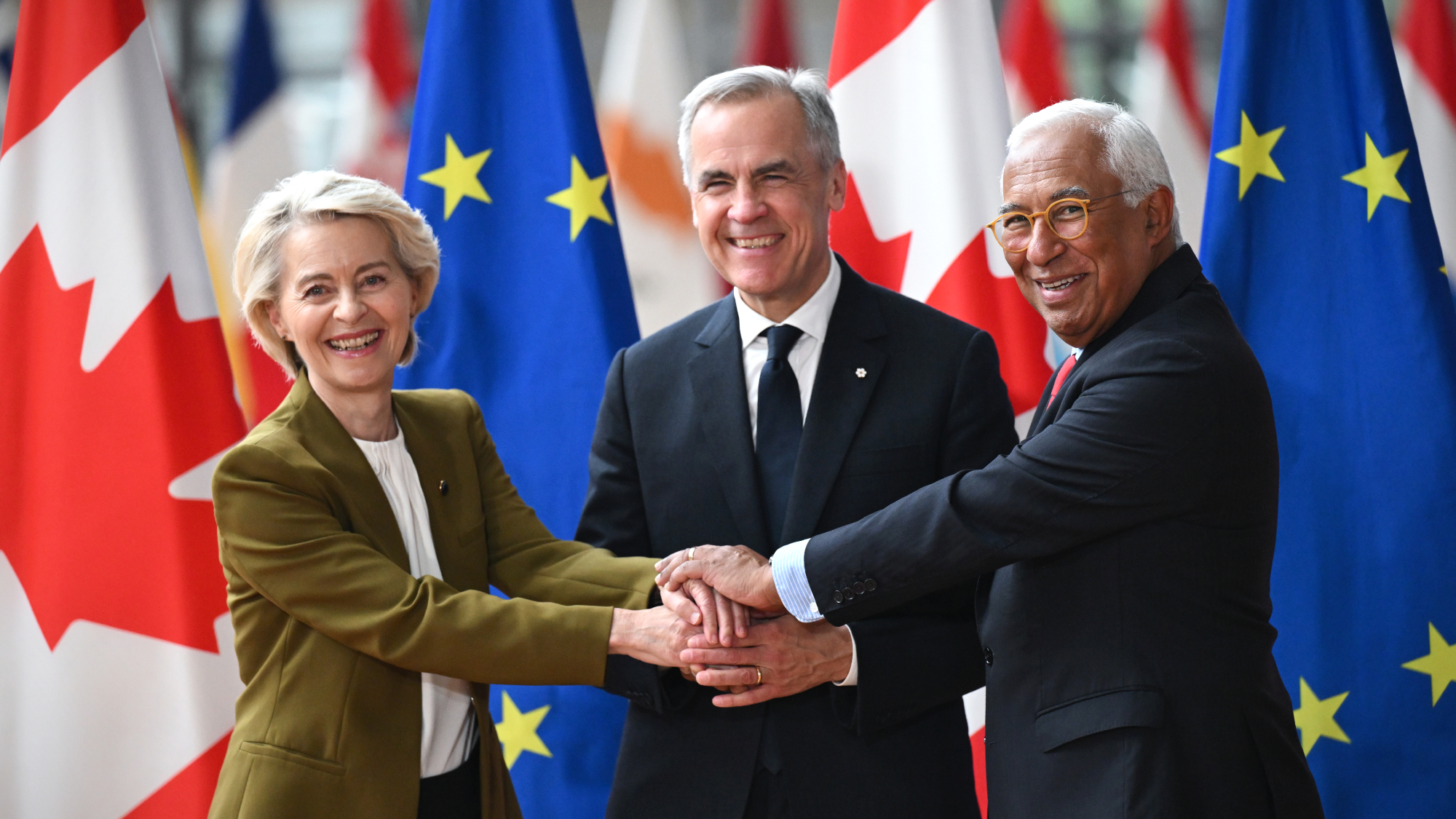Shamima Begum and the ‘Canadian spy’ who smuggled her into Syria
Britain conspired to cover up Canada’s role in the operation, claims a new book

A free daily email with the biggest news stories of the day – and the best features from TheWeek.com
You are now subscribed
Your newsletter sign-up was successful
Shamima Begum, the British schoolgirl who left the UK to join the Islamic State group, was smuggled into Syria by a spy working for Canadian intelligence, and Britain later conspired to cover up Canada’s role in the operation, a book has claimed.
Scotland Yard was allegedly told that Begum, then 15, and her two school friends, 16-year-old Kadiza Sultana and 15-year-old Amira Abase, were trafficked into Syria by a smuggler who was working as a double agent for Islamic State and Canadian intelligence.
As the Metropolitan Police launched a huge international search for the schoolgirls, Canada failed to inform the UK of its role in the affair. Canadian intelligence admitted its involvement only after it feared being exposed, and then asked the British to cover up its role.
The Week
Escape your echo chamber. Get the facts behind the news, plus analysis from multiple perspectives.

Sign up for The Week's Free Newsletters
From our morning news briefing to a weekly Good News Newsletter, get the best of The Week delivered directly to your inbox.
From our morning news briefing to a weekly Good News Newsletter, get the best of The Week delivered directly to your inbox.
The alleged cover-up is detailed in a new book, The Secret History of the Five Eyes (a reference to the intelligence alliance comprised of Australia, Canada, New Zealand, the UK and the US), by Richard Kerbaj, a former security correspondent at The Sunday Times.
What are the allegations?
The book claims that Canada, worried about its own young people being urged to join IS, recruited IS human trafficker Mohammed al-Rashed as an intelligence agent when he applied for asylum at the Canadian embassy in Jordan.
Al-Rashed is said to have helped organise the travel of dozens of jihadists and their brides into Syria from the UK. The double agent then “photographed their passports on the pretext that he needed proof of identity to buy domestic transport tickets and then forwarded the images to his handler with the Canadian Security Intelligence Service (CSIS) at the Jordan embassy”, said The Times.
Kerbaj’s book claims that the Canadians were silent as the Metropolitan Police launched an urgent hunt for the girls. But when al-Rashed was arrested in Turkey in 2015 and found to have travel documents as well as bus tickets belonging to the British schoolgirls, the CSIS realised its cover could be blown.
A free daily email with the biggest news stories of the day – and the best features from TheWeek.com
According to the book, one Five Eyes source said: “The CSIS officers knew that Scotland Yard had a live investigation into the three schoolgirls and also knew that sooner or later the finger would point at them.”
CSIS officers then arranged to meet Commander Richard Walton, then the Met’s head of counterterrorism, to admit their agent’s involvement. But Walton is said to have felt it was a “self-serving” visit designed to deflect blame or accountability from the CSIS, according to Kerbaj’s book.
The book claims that the Canadians could not have stopped the girls’ travel because by the time al-Rashed’s handler was told, they had already crossed the border.
What does this mean for Begum?
The revelation “reopens the debate” over stripping Begum of her British citizenship as it “shows that an asset of Western intelligence gave practical help for her journey” to Syria and to becoming a jihadi bride, and ultimately undermines the government’s claim that Begum was not trafficked, said The Times.
There was “no mention” that the British authorities knew how she was smuggled into Syria in last year’s Supreme Court judgement, which upheld the decision to bar her from returning to the UK. Begum, now 23, remains in a camp in northern Syria and is set to renew her case at the Special Immigration Appeals Commission in November.
The revelations are also a “deep embarrassment” for the Five Eyes, which is “supposed to be the closest intelligence-sharing network in the world”, said The Times’s diplomatic correspondent Catherine Philp.
“An ally as close as Britain would expect to be trusted with such information, even if it were not openly pooled in the Five Eyes network,” wrote Philp, yet Canada only revealed intelligence it had on the schoolgirls to avoid exposure.
Calls for an inquiry
Tasnime Akunjee, the criminal defence lawyer for the Begum family, has called for an inquiry into what the police and intelligence services knew about the activities of the Canadians.
Akunjee told The Times: “Britain has lauded its efforts to stop Isis and the grooming of our children by spending millions of pounds on the Prevent programme and online monitoring.
"However, at the very same time we have been co-operating with a Western ally, trading sensitive intelligence with them whilst they have effectively been nabbing British children and trafficking them across the Syrian border for delivery to Isis all in the name of intelligence-gathering.”
He added that the revelations were of “crucial importance”, given that Begum has argued that she was trafficked into Syria.
-
 The ‘ravenous’ demand for Cornish minerals
The ‘ravenous’ demand for Cornish mineralsUnder the Radar Growing need for critical minerals to power tech has intensified ‘appetite’ for lithium, which could be a ‘huge boon’ for local economy
-
 Why are election experts taking Trump’s midterm threats seriously?
Why are election experts taking Trump’s midterm threats seriously?IN THE SPOTLIGHT As the president muses about polling place deployments and a centralized electoral system aimed at one-party control, lawmakers are taking this administration at its word
-
 ‘Restaurateurs have become millionaires’
‘Restaurateurs have become millionaires’Instant Opinion Opinion, comment and editorials of the day
-
 House votes to end Trump’s Canada tariffs
House votes to end Trump’s Canada tariffsSpeed Read Six Republicans joined with Democrats to repeal the president’s tariffs
-
 How corrupt is the UK?
How corrupt is the UK?The Explainer Decline in standards ‘risks becoming a defining feature of our political culture’ as Britain falls to lowest ever score on global index
-
 ‘My donation felt like a rejection of the day’s politics’
‘My donation felt like a rejection of the day’s politics’Instant Opinion Opinion, comment and editorials of the day
-
 ‘It’s good for the animals, their humans — and the veterinarians themselves’
‘It’s good for the animals, their humans — and the veterinarians themselves’Instant Opinion Opinion, comment and editorials of the day
-
 The high street: Britain’s next political battleground?
The high street: Britain’s next political battleground?In the Spotlight Mass closure of shops and influx of organised crime are fuelling voter anger, and offer an opening for Reform UK
-
 What is the global intifada?
What is the global intifada?The Explainer Police have arrested two people over controversial ‘globalise the intifada’ chants
-
 Is a Reform-Tory pact becoming more likely?
Is a Reform-Tory pact becoming more likely?Today’s Big Question Nigel Farage’s party is ahead in the polls but still falls well short of a Commons majority, while Conservatives are still losing MPs to Reform
-
 Canada joins EU’s $170B SAFE defense fund
Canada joins EU’s $170B SAFE defense fundspeed read This makes it the first non-European Union country in the Security Action for Europe (SAFE) initiative